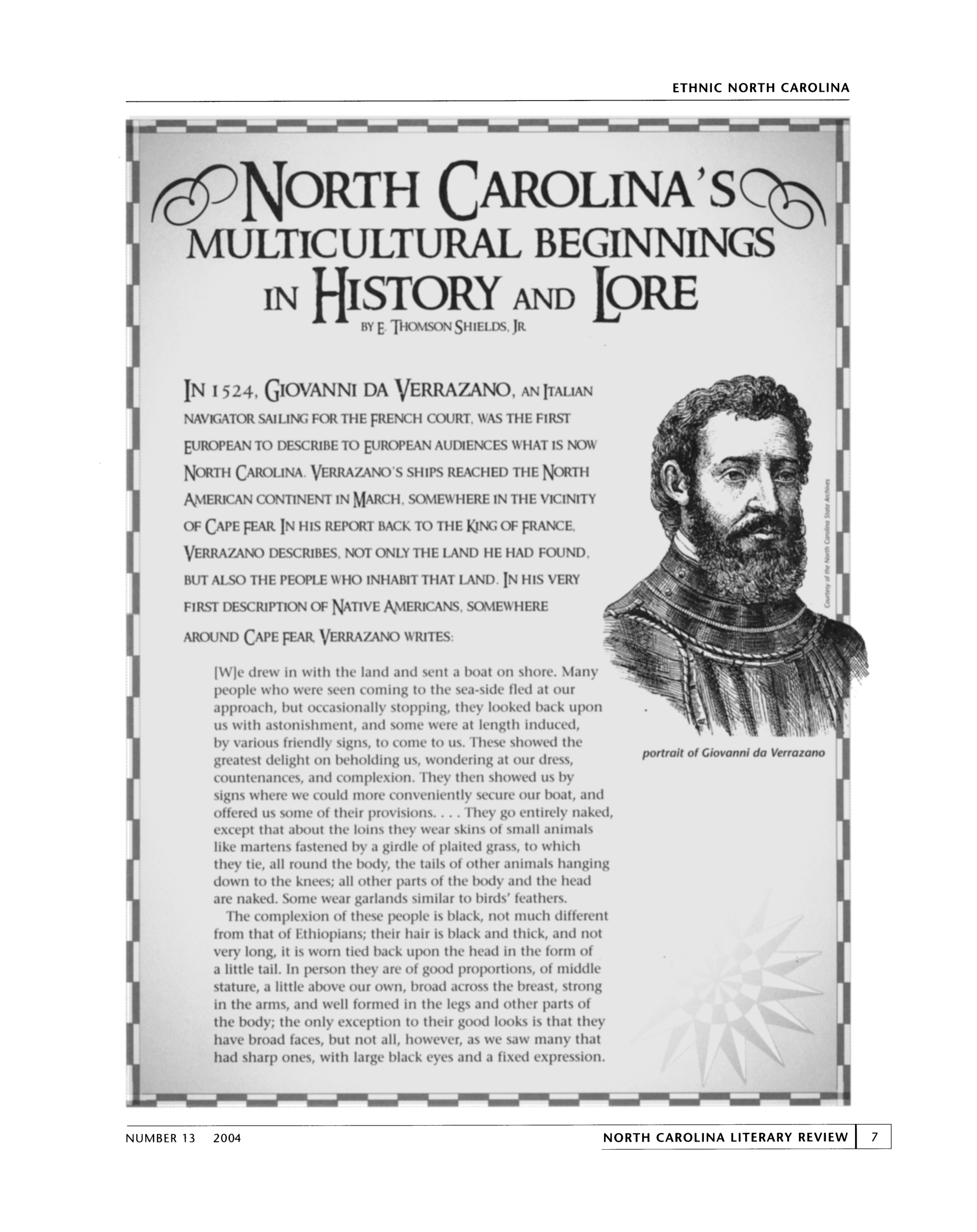Friday from the Archives: “North Carolina’s Multicultural Beginnings in History and Lore” by E. Thomson Shields from NCLR 13 (2004).
This article was written by Editorial Assistant Amber Knox
As a final nod to Ethnic Equality Month we are looking back at “North Carolina’s Multicultural Beginnings in History and Lore” from an early feature section, Ethnic North Carolina. E. Thomson Shields, now Professor Emeritus from ECU, contributed several different pieces on multicultural literature, particularly from before the creation of America, to NCLR.
Through his exploration of early European explorers and Native Americans and the threads between them, Shields highlights the ways in which “the North Carolina experience has been multicultural from the very start.” Here, he presents a discussion of these first explorers of North Carolina and the literature they left behind in the form of their journals. Shields’ exploration of these journals is an interesting look at cultural interaction and the unconscious biases that can arise when we are confronted by a culture different from our own. He focuses on the ways in which the European explorers who first set foot in North Carolina viewed their interactions with Native Americans through the filter of their own cultural beliefs.
As Shields states “in writing about other cultures, writers of North Carolina’s early history revealed as much about their own cultures as they did about the people they were describing.” This claim is evident in Giovanni de Verrazano’s view of Native Americans as existing in “a culture before religion” or Captain Juan Pardo’s attempts to “explain the difference in terms of his own culture.” Not only does Shields address the cultural differences that early explorers encountered in the Native Americans, he also shows how the Europeans brought their own cultural influences with them, and how this multicultural meeting affected North Carolina’s history.
There is, of course, also a noticeable lack of certain records about the early history of North Carolina. Shields writes, “It is from this lack of information that legends are born.” He goes on to reveal there are several groups of people mentioned in the writings of North Carolina’s early explorers who proceeded to disappear from the historical record, as well as several groups in modern day North Carolina whose history and origins are unclear, such as the Lumbee Indians. In Shield’s consideration, “…several different groups of North Carolina’s multicultural past come together. To explain the unknown origins of cross-cultural influence, the wholesale joining of various “lost” ethnic groups becomes a pattern.”
Read the article by ordering the 2004 issue for your collection.
